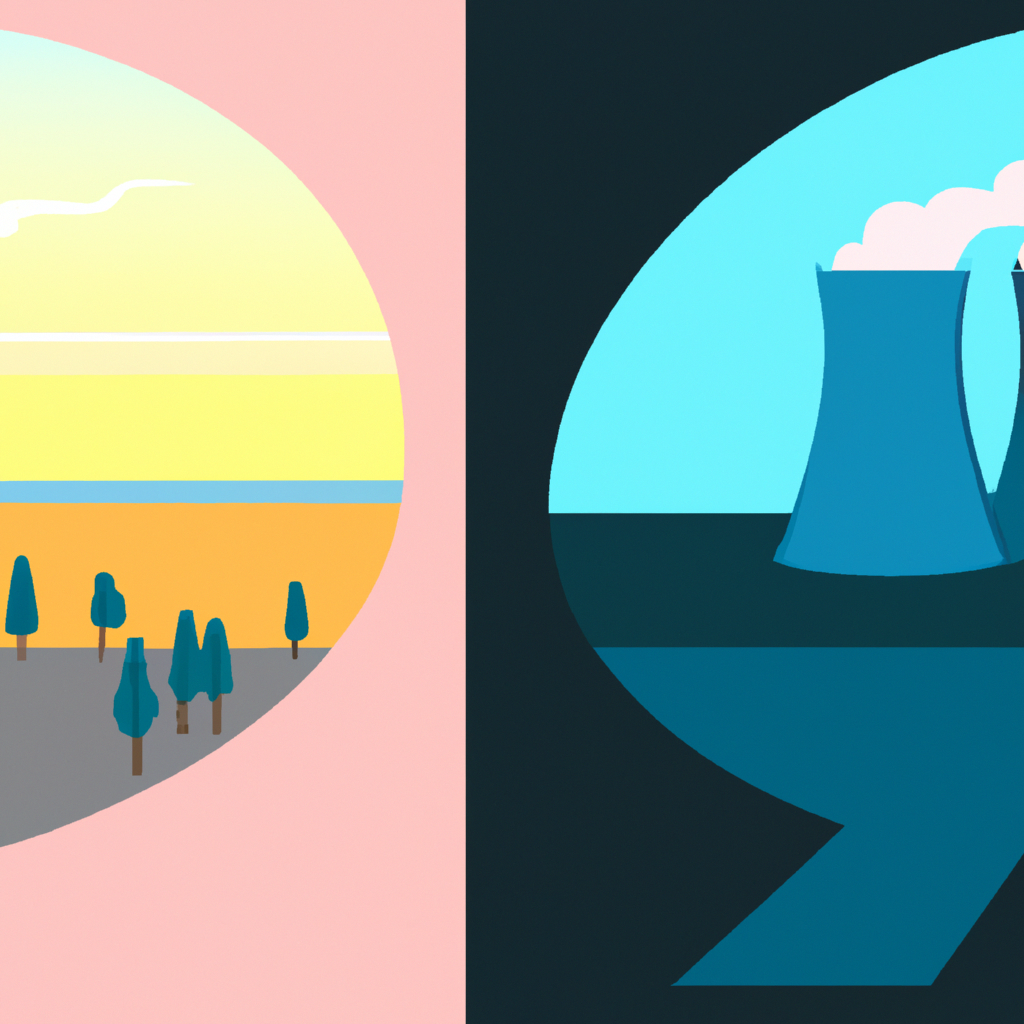Nuclear energy has been a topic of great debate for decades. Some argue that it is a necessary source of clean energy, while others believe it poses significant risks to human health and the environment. In this article, we will provide a comprehensive analysis of the pros and cons of nuclear energy.

What is Nuclear Energy?
Nuclear energy is the energy released during a nuclear reaction, either through nuclear fission or nuclear fusion. Nuclear fission involves the splitting of an atom’s nucleus, while nuclear fusion involves the fusion of two atomic nuclei. Nuclear power plants use nuclear fission to generate electricity.
The Pros of Nuclear Energy
1. Clean Energy
Nuclear energy is a source of clean energy as it does not produce greenhouse gases that contribute to climate change. Unlike fossil fuels, such as coal and oil, which release large amounts of carbon dioxide and other pollutants into the atmosphere, nuclear energy does not emit any pollutants.
2. Reliable Energy
Nuclear power plants are designed to operate continuously for extended periods, providing a reliable source of energy. This makes nuclear energy an attractive option for meeting the increasing demand for energy.
3. Cost-Effective
While nuclear power plants have high initial costs, they are cost-effective in the long run. Nuclear energy is cheaper than other forms of energy, such as solar and wind, once the plant is up and running. Nuclear power plants also require less land than other forms of renewable energy.
4. High Energy Density
Nuclear energy has a high energy density, meaning that a small amount of nuclear fuel can produce a significant amount of energy. This makes it a highly efficient source of energy.
5. Energy Security
Nuclear energy provides energy security as it reduces dependence on foreign oil and gas. This helps to stabilize energy prices and reduces the risk of supply disruptions.
The Cons of Nuclear Energy
1. Accidents
Nuclear accidents, such as the Chernobyl disaster in 1986 and the Fukushima disaster in 2011, have highlighted the risks associated with nuclear energy. These accidents can have severe consequences for human health and the environment.
2. Nuclear Waste
Nuclear power plants produce radioactive waste that remains hazardous for thousands of years. The safe disposal of nuclear waste is a significant challenge, and there is currently no permanent solution.
3. Non-Renewable
Nuclear energy is a non-renewable energy source, meaning that it relies on finite resources. Uranium, the primary fuel used in nuclear power plants, is a finite resource that will eventually run out.
4. Proliferation
The use of nuclear energy can contribute to the proliferation of nuclear weapons. The materials used in nuclear power plants can also be used to create nuclear weapons, making nuclear energy a potential security risk.
5. High Initial Costs
Nuclear power plants have high initial costs, making them financially risky. The construction of a nuclear power plant can take several years, and there is a risk that the project may be abandoned before completion.
Conclusion
In conclusion, nuclear energy has both advantages and disadvantages. While it is a source of clean, reliable, and cost-effective energy, it also poses significant risks to human health and the environment. The safe disposal of nuclear waste and the potential for nuclear accidents and proliferation are also significant concerns. Ultimately, the decision to invest in nuclear energy should be based on a careful consideration of the pros and cons.







